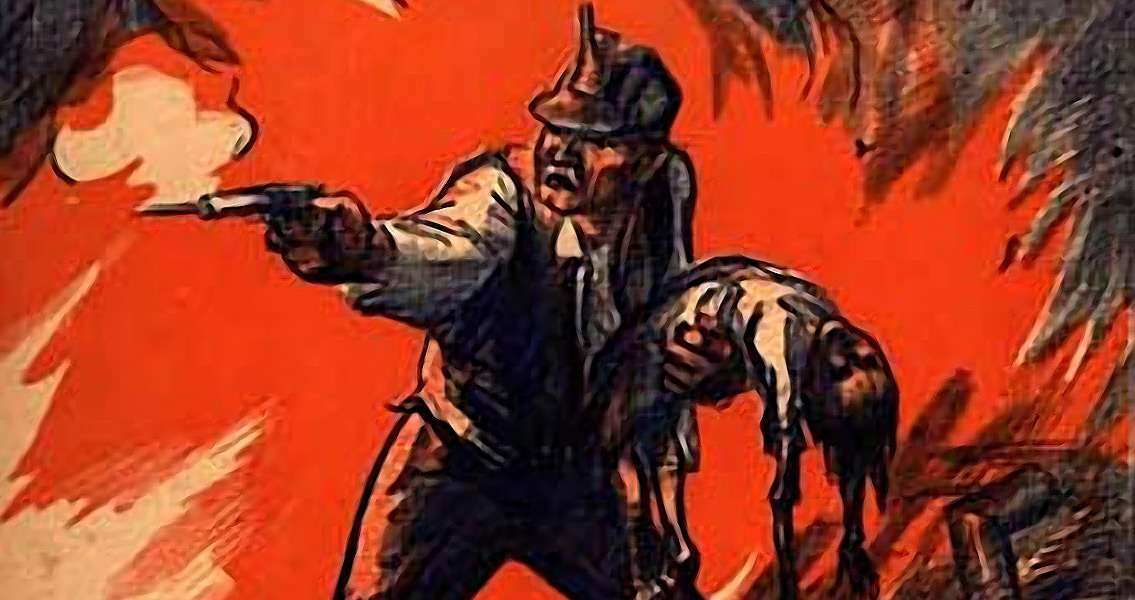<![CDATA[20th April marks the anniversary of one the deadliest confrontations between strikers and strike breakers in US history. The Ludlow Massacre of 1914 has come to symbolise the extreme political power that could be wielded by business owners in the early twentieth century, and the very real dangers of involvement in union activity. Workers from the Colorado Fuel and Iron Company (C F & I) had started strike in September 1914. Predominantly first generation immigrants from Italy, Greece and Serbia, much of the work force was recruited a decade earlier after the company had fired a huge swathe of employees in another strike. In August 1913, the United Mine Workers had set about trying to organise the eleven thousand dissatisfied workers of the C F & I. The workers' main grievances were the long and unregulated hours they were forced to work, low pay, and what they believed to be the corrupt practices of the company's management. The Union invited C F & I representatives to meet and discuss the workers' grievances, but the invitation was refused. The following month eight thousand miners went on strike. Their demands included the enforcement of an eight hour work day, a 10% pay rise and the right to live outside the company owned town. (Many employers in this period provided their workers with company housing - a fact which could severely undermine the employees position in any negotiations) The Rockefeller family, who owned CF & I, reacted swiftly, evicting the miners and their families from the company owned homes. The miners set up canvas tent colonies in the surrounding hills, and continued their strike. The largest tent colony was that at Ludlow. Evictions having failed, the Rockefeller family swiftly turned to violence and intimidation. A private detective agency was hired to pressure the striking miners. These detectives launched sporadic attacks at the camps, raiding them and opening fire with shotguns and Gatling guns. The detectives' ineffectiveness led to the Colorado governor calling in the National Guard, with the Rockefeller family agreeing to pay the soldiers wages. The situation highlighted the growing hostility of the conflict, with both parties becoming increasingly militarised. As the stand off stretched into the New Year, the stalemate seemed increasingly unbreakable. In early April John D. Rockefeller appeared before Congress, where he framed the labour dispute as "a national issue, whether workers shall be allowed to work under such conditions as they may choose." On the morning of the 20th April, two companies of National Guardsmen opened fire on the Ludlow colony. A gun fight ensued, as the miners shot back with rifles and pistols. The women and children in the colony took cover in pits dug underneath the tents, as the fire fight continued through the day. In the evening, the guardsmen began to burn down the colony, shooting strikers who attempted to flee into the countryside. The following morning the scale of the massacre became apparent. Thirteen people had been killed trying to flee the camp. More bodies were found in the camp itself, the most distressing discovery being that of a burned infirmary tent in which the burnt bodies of 11 children and three women were found. In total, more the 60 miners had been killed in the violence. Within a few weeks of the attack the strike was broken. No National Guards Men or members of the militia faced trial for the deaths at Ludlow, despite multiple testimonies to the events at the camp. Rockefeller denied the massacre ever happened, claiming that the National Guardsmen and private detectives had been severely outnumbered and set upon by the miners. News of the events in Ludlow quickly spread throughout the United States. Unions in other states pledged their support of the miners in Colorado, and carried out solidarity strikes. In New York there were protests against the Rockefellers. In Congress, senators began to question the influence big business could have over the US government. The strikers at Ludlow paid a heavy price, and ultimately failed to achieve their short term goal - concessions from the Rockefellers to improve working conditions. In the long term, the event was important, opening up discussions about employees' rights and the abuses business leaders could carry out in the Old West. Over the following decades, stricter labour laws and increased enforcement of them curtailed the power of employers and gave more rights to unions. ]]>
The Ludlow Massacre
